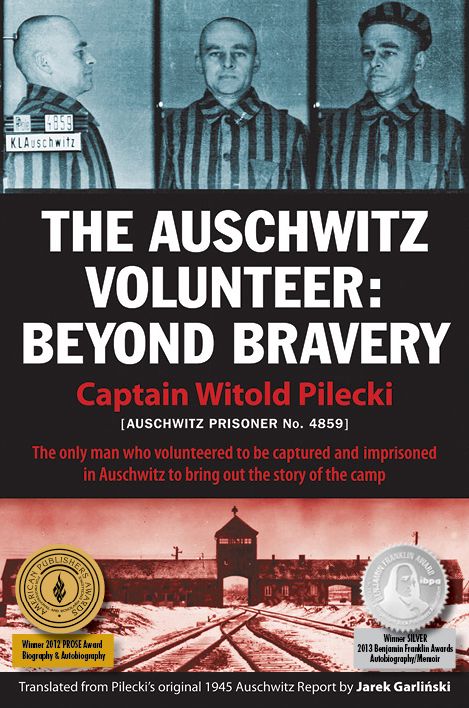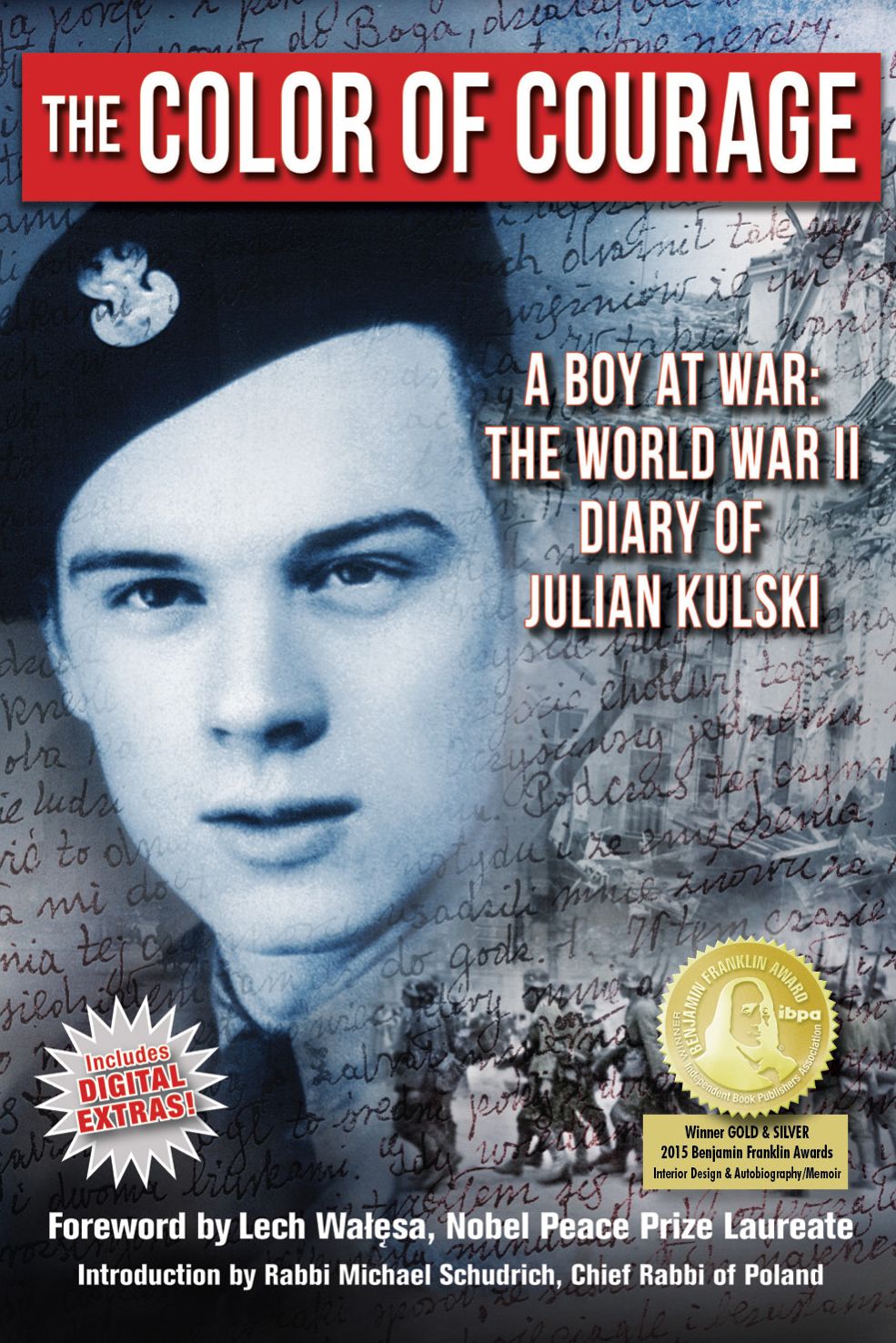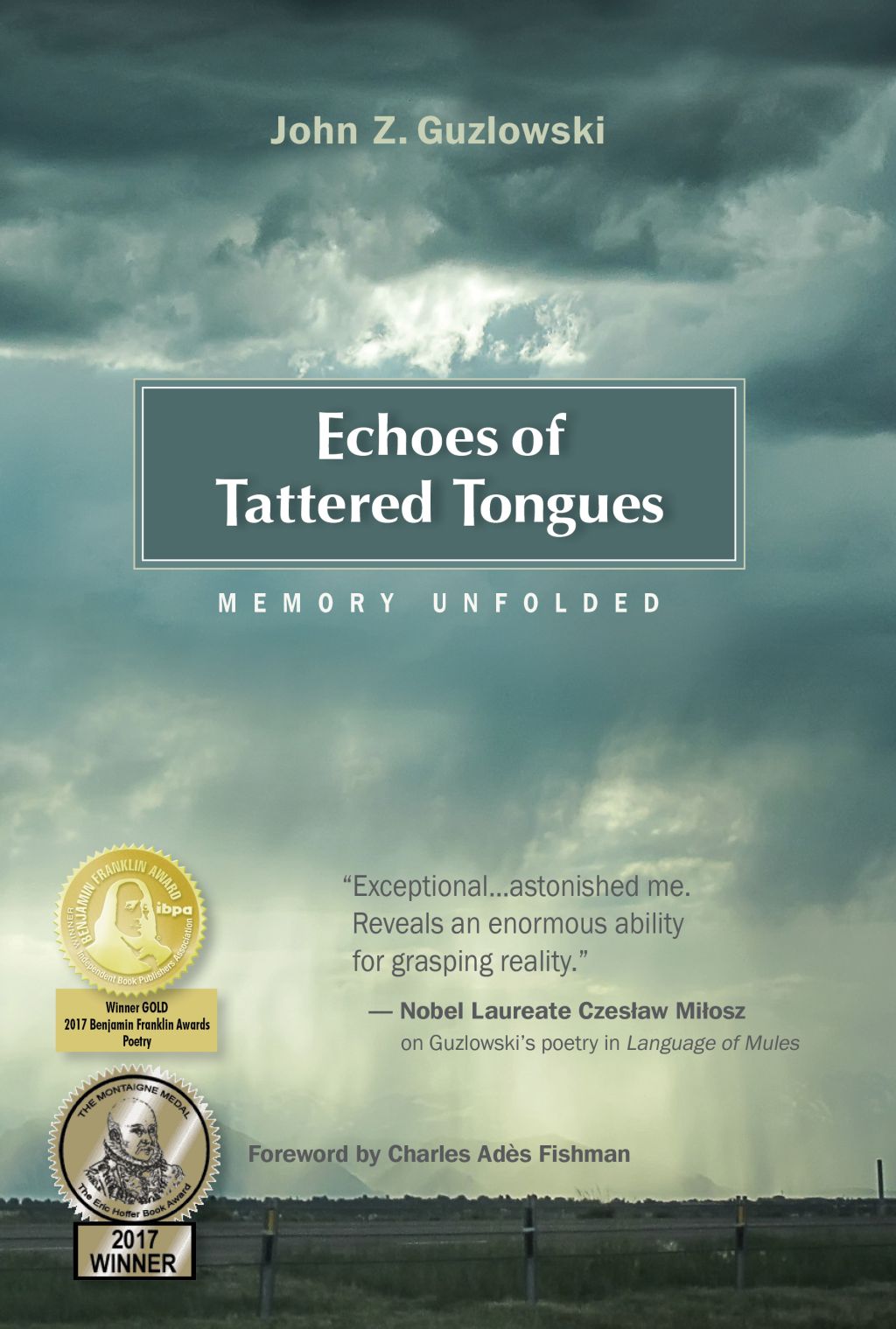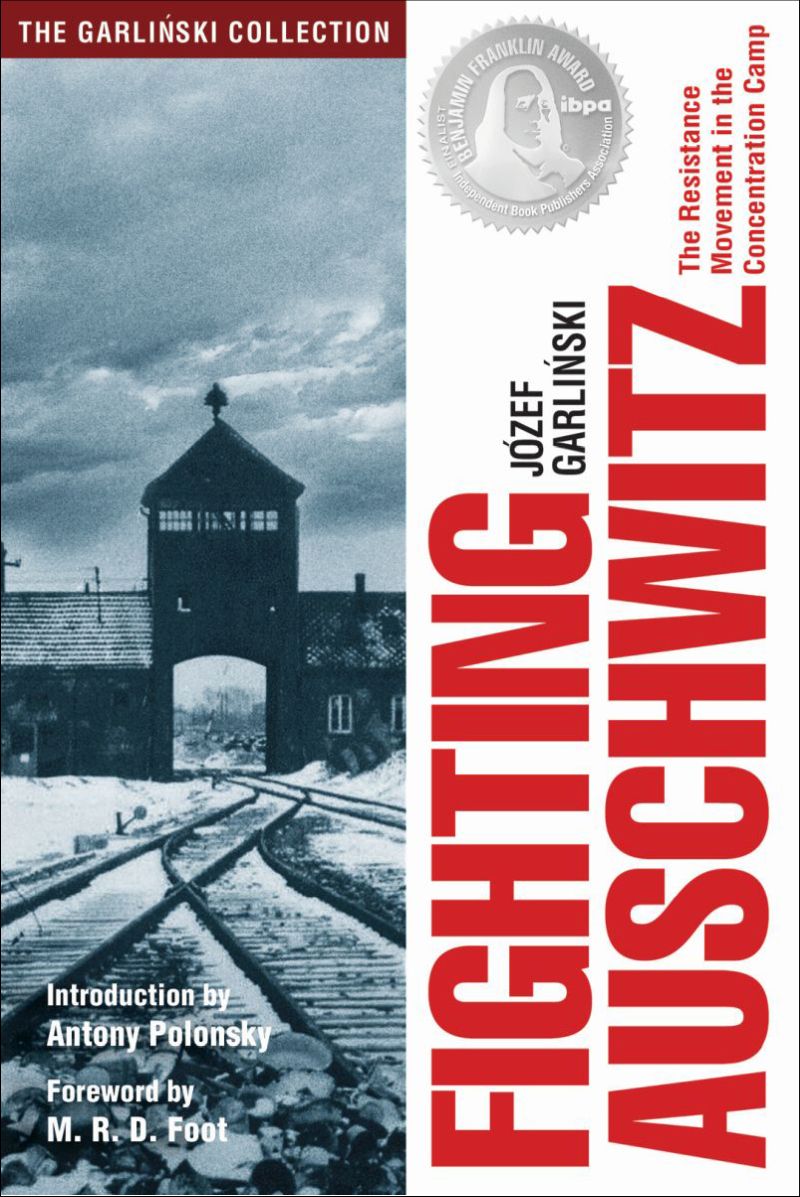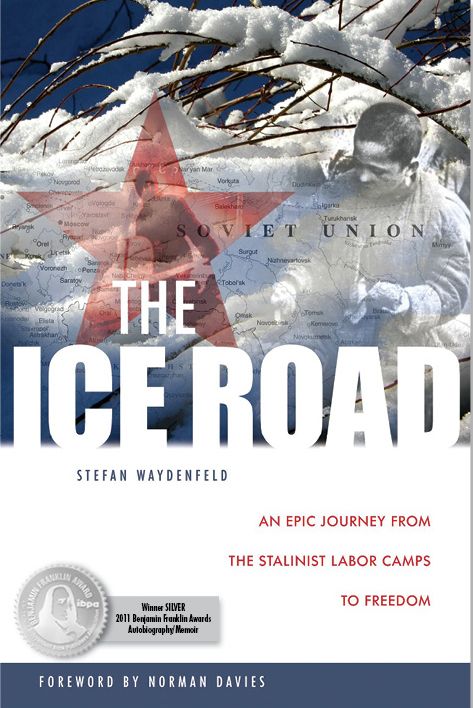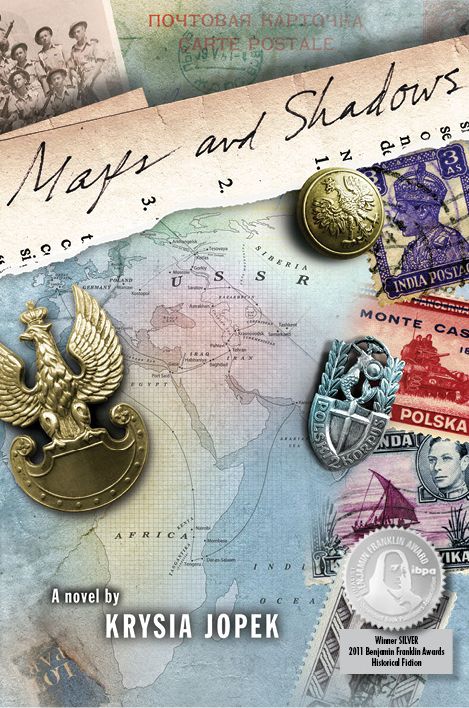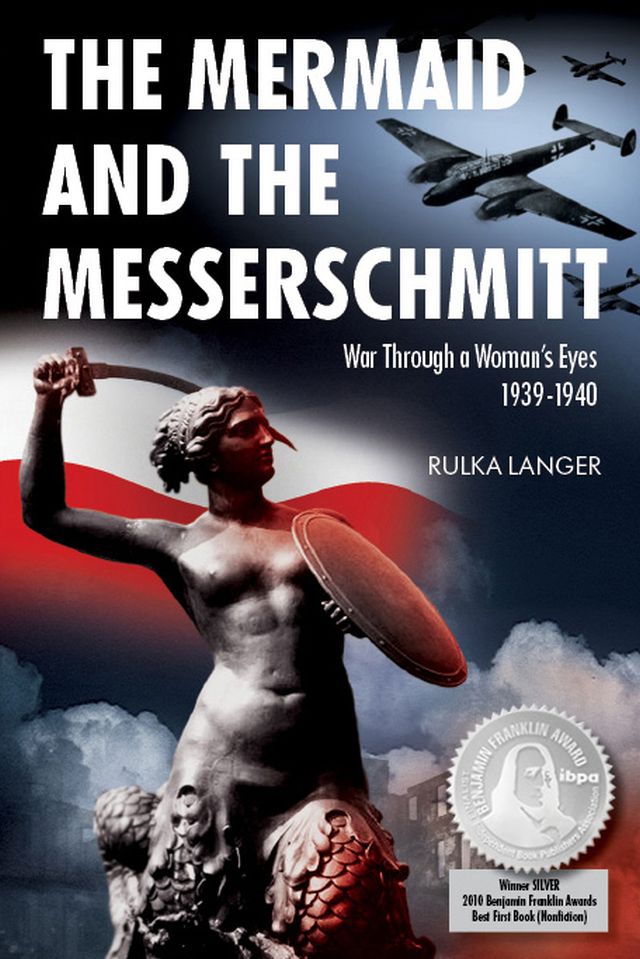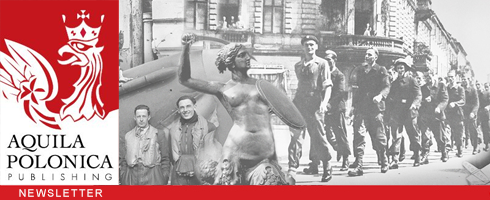ECHOES OF TATTERED TONGUES: Memory Unfolded
by John Guzlowski
Foreword by Charles Ades Fishman
Format, ISBN & Retail Price:
Hardcover: 978-1-60772-021-8 ($21.95)
Ebook (all major formats): 978-1-60772-023-2 ($9.99)
Audiobook: Audible.com
Size: 6 in x 9 in
Page Count: 176
Includes: Six black & white photos; epilogue; appendix; Discussion Questions.
Echoes of Tattered Tongues
Praise

Winner of the Benjamin Franklin GOLD Award for POETRY
 Winner of the MONTAIGNE MEDAL for Most Thought-Provoking Book of the Year
Winner of the MONTAIGNE MEDAL for Most Thought-Provoking Book of the Year
“A searing memoir.”
— Shelf Awareness, choosing Echoes Trailer as Book Trailer of the Day
“Devastating, one-of-a-kind collection.”
— Foreword Reviews
“Gut-wrenching narrative lyric poems.”
— Publishers Weekly
“Taut…beautifully realized.”
— World Literature Today
“A formally coherent, challenging, and important book, chronicling the lasting scars of one family with deftness and narrative depth. Guzlowski is often bluntly direct, and occasionally lyrically oblique, but both to great effect. Emily Dickinson admonished poets to tell it slant, and Guzlowski certainly takes her advice, but he also sometimes ignores it in favor of Chekhov’s equally sage admonishment to tell the most monstrous events in the coldest and most direct fashion.”
— Harvard Review
“Powerful…Deserves attention and high regard. To read these poems is to lift the lid on history and risk a step inside. One not only suffers the furnace but also endures, like the poet himself, the human will to counter history’s inferno with an awful fire all its own. The poet’s spare voice sings as austerely as his parents’ trunk cobbled of Buchenwald wallboards. These poems do not flinch even as they take and give a punch: each note the pitch of absence given body, each silence a terrible waiting answered by singed arrival.”
— Kevin Stein, Poet Laureate of Illinois
“Deeply moving. John Guzlowski has written a powerful, lasting, and sometimes shocking book, one in which prose and poetry join hands to document a felt comprehension of the horrors perpetrated by the Nazis in WWII. He tells the stories his parents would have told had they not been living them. Thus these pages honor his forebears and indeed all those who were in the camps. The stories will haunt you but we must read them or fail to grasp what humans can do to humans. Anyone who wishes to consider himself or herself knowledgeable about the world in which, for better or for worse, we live, will read this superb book.”
— Kelly Cherry, Poet Laureate of Virginia, 2010–2012
“Excellent on so many levels. It is raw, moving, real. The writing is compelling. Hypnotic. Storytelling at its best.”
—Nasiona Magazine
“If honesty has a color, then Guzlowski writes in it.”
— War, Literature and the Arts: An International Journal of the Humanities
“In every respect, Echoes of Tattered Tongues deserves wide recognition and long remembrance.”
— As It Ought To Be blog
“Unforgettable. An historical and literary revelation.”
— Cosmopolitan Review
“A wonderful book and a very important one. Unwaveringly lucid and luminous poems…leave his readers with no safe perches yet show them how to mourn and praise. Extraordinary.”
— Charles Adès Fishman, editor of Blood to Remember: American Poets on the Holocaust and poetry editor of PRISM: An Interdisciplinary Journal for Holocaust Educators
“John Guzlowski’s rugged poems rise like a land-bridge emerging from would-be oblivion to connect continents, generations, and a deeply felt personal present with the tragic, implacable history of the twentieth century.”
— Stuart Dybek, award-winning MacArthur Fellow and poet, author of Ecstatic Cahoots: Fifty Short Stories
“An astonishing collection.”
— Virginia Living Magazine
“These are poems whose images and metaphors have undergone the finest grinding, becoming cyrstal lenses to magnify the inner and outer lives of his parents. The clear poetic/narrative voice is remarkably strong yet elegant—this is not a random collection but the story of a family across generations dealing with the consequences of world war. We have through Guzlowski’s persona a refugee child trying to make sense of the world with parents trying to make sense of their lives after the war’s work camp. Guzlowski’s book is a magnificent elegy to civilian lives lost or shattered in war and thereafter. Guzlowski has successfully undertaken a monumental, moral obligation.”
— Bibliotekos
“I could not praise it enough—masterfully done. Reads almost like a novel.”
— Professor Gregory F. Tague, editor of Battle Runes: Writings on War and Common Boundary: Stories of Immigration
“This is a book to hold and to hug, to stroke softly…it shines…like seeing into people’s souls.”
— Martin Stepek, award-winning poet, author of For There Is Hope
“Intensely personal and visceral…a valuable contemplation of lives lived in the unforgiving crucible of history.”
— Polish American Studies
“Guzlowski’s book is essential for anyone wanting fully to understand ethnicity in America. Through authentic and meticulously observed and recorded details, Guzlowski reaches the universal. All readers, of any ethnicity or life experience, will find something to identify with in these pages. This is an excellent, important, and highly recommended book.”
— Danusha Goska, Save Send Delete blog
What are the Benjamin Franklin Awards?
Praise for
Guzlowski’s Earlier Works
“Exceptional…even astonished me…reveals an enormous ability for grasping reality.”
— Nobel Laureate Czeslaw Milosz on Guzlowski’s poetry in Language of Mules
“Remarkable blend of academic scrutiny with stark, uncompromising humanity. What I find fascinating is Guzlowski’s ability to always say something new…balancing overarching social commentary with the smallest, heart-wrenching details.”
— Michael Meyerhofer, Atticus Review
“Guzlowski should join the annals of the great recording angels, not just for his unsparing yet compassionate language but also because he makes clear what is so easy to forget: that no matter how many years pass, such events never do.”
— Lola Haskins, author of Desire Lines: New and Selected Poems
“Brings us face to face with what we cannot allow ourselves to forget.”
— Jared Carter, author of Work, for the Night Is Coming and After the Rain
Share this:
- Click to share on Facebook (Opens in new window)
- Click to share on X (Opens in new window)
- Click to email a link to a friend (Opens in new window)
- Click to share on LinkedIn (Opens in new window)
- Click to share on Twitter (Opens in new window)
- Click to share on Tumblr (Opens in new window)
- Click to share on Pinterest (Opens in new window)


